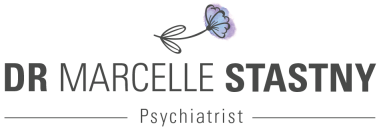I recently started treating a very depressed patient. He had been struggling for some time. His world was a grey landscape where nothing stood out. The days just merged from one to the other. The only thing he looked forward to, with desperation, was his evening routine of wine and cannabis which helped him relax and fall asleep. He would have restless, anxious nights. He dreaded mornings, when he would get up exhausted and just have to grit his teeth and face the day again.
When I told him that he was very depressed, tears filled his eyes. He hadn’t thought that he had an illness. He just came to see me because his wife had insisted. He thought he was suffering because he was the worlds most useless person. That he somehow deserved to suffer.
Depression is a particularly nasty illness. It affects your biology, your ability to get restorative sleep, your energy levels, your libido and your ability concentrate. It affects your thought processes. You can’t come to logical conclusions and weigh up options. Everything is on a loop of self loathing and paranoia. It affects your soul: feeling helpless and hopeless is just part of the package.
The brain is an organ. It can get sick, like any other organ. Depression is an illness of the brain. It is not a weakness. It is not a choice.
Treating depression is not an overnight process. It can be slow and difficult with detours and wrong turns. But it is treatable, and thankfully, new treatment options are becoming available all the time.
Lifestyle
As with all chronic illnesses there is a lot you can do to make yourself stronger, to ensure that medical interventions have fertile soil to fall on.
In my patient, carving the day up into normal routines of wake times and bedtimes, mealtimes and brush teeth times helped him feel more normal. Just having a routine of “help pack dishes after mealtimes” was something that would never occur to his depressed brain, but that made him feel a little bit part of his family again.
His substance abuse was harder to address. Once he realised that his self medicating was perpetuating the cycle, we could work on healthier ways to release stress in the evenings and help with sleep.
I had to constantly help him catch his negative thoughts. Psychologists call these “NATS” Negative Automatic Thoughts. They truly are gnats, relentlessly tormenting patients.
In the beginning, it was very difficult to get him to eat healthily, because he had no appetite or only craved sweets, which he would binge. As he is feeling better and more in touch with himself, it is becoming easier.
There is a lot of evidence on the benefits of exercise. I have my patient’s wife’s buy-in to encourage regular walks, but my patient is still getting there.
Therapy
There are various modalities of therapy, each of them valuable in their own way. Carefully looking at defences which no longer serve and unconscious behaviours which harm, can be life changing.
I am helping my patient with CBT (cognitive behaviour therapy), to help him to use logic to deal with some of his thought processes.I have also referred him to psychotherapy, because he has had a traumatic childhood which needs understanding.
Medication
Neurotransmittors are chemical messengers that carry information from one neuron to the next. There are many neurotransmitters in the brain. Serotonin, Dopamine and Noradrenalin are very involved in mood modulation, as are glutamate, GABA and melotonin.
Patients often come to me and say that they “have tried everything” to get better. The reality is that there are several classes of anti depressants, each class working on a specific neurotransmitters or combinations of neurotransmittersThe other confounding variable is that each patient is an individual, processing medication differently, and experiencing side effects differently.. Sometimes it is a bumpy road finding the right medication for the patient.
Rewiring: TMS and ECT
The brain releases neurotransmitters to function. The impulse to release these neurotransmitters comes from its circuitry, the pathways. When you are depressed, parts of your brain just doesn’t fire properly.
There have been extremely exciting developments in recent years with treatment modalities like TMS (Transcranial Magnetic Stimulation). TMS “jump starts” this circuitry and allows healing to occur.
Sometimes, as in Treatment Resistant Depression, medication does not adequately address the symptoms. Or it does, but the side effects of the medications are unpleasant. TMS is another tool in our toolbox to tackle these difficult cases.
TMS is painless and non invasive.
ECT (Electro convulsive therapy) has long been a very effective way to treat depressions which do not respond to other modalities. Because you induce a seizure with this kind of treatment, anaesthetics is needed and it is mostly done as an inpatient. It is effective. Patients do get better.
The brain is an organ. It can get sick, like any other organ. But it wants to heal and restore itself. We just have to find ways to create an environment for it to happen.






3 Comments
I just wanted to share a cautionary tale. In my early 20’s I was diagnosed with depression and put on 20mg of fluoxetine which helped. During my late 20’s I was involved in impossible academic situation which saw my depression come back worse than before. I was put back on fluoxetine, first on 20 then 40 then 60 mg and then sometimes I wondered if I had skipped a dose and took and extra 60mg anyway. It wasn’t long before I was hypomanic and then later full-blown manic including some psychotic features. I was later diagnosed as bipolar type I which involves a different clinical course and more but different medicines.
I want to emphasise that two of the groups of antidepressants that I know about, the Selective Serotonin Reuptake Inhibitors and the Selective Serotonin and Norepinephrine Reuptake Inhibitors can flip one from Major Depression into Bipolar Disorder, which isn’t necessarily better or worse but is probably harder to manage and cannot be cured. So if you are depressed and your doctor just keeps adding higher doses of the same medication you need to have a conversation about that.
Hi
I have bipolar undpecified- whatever that means . How much are drs fees and how much does the treatment cost?
Thanks
Hi Cindi.
Please see http://www.rewire.co.za for more information